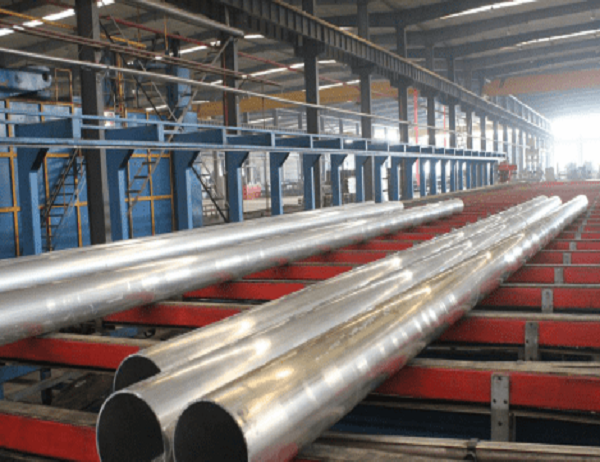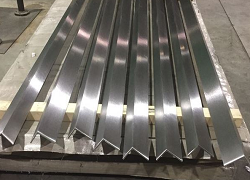Aluminum extrusion is a manufacturing process that involves forcing aluminum billets through a die to create profiles with specific cross-sections. Extruded aluminum pipes offer exceptional structural integrity and versatility, making them ideal for various applications across industries. This article explores the multifaceted benefits of high-quality extruded aluminum pipes in enhancing structural integrity.
Superior Strength-to-Weight Ratio
Extruded aluminum pipes exhibit an impressive strength-to-weight ratio compared to other materials. The extrusion process aligns the aluminum’s grain structure, creating a strong and lightweight material. This allows engineers to design structures that are both sturdy and efficient in weight.
Excellent Corrosion Resistance
Aluminum is highly resistant to corrosion, making extruded aluminum pipes suitable for applications in harsh environments. Unlike steel, which is prone to rust, aluminum forms a protective oxide layer that prevents further oxidation. This eliminates the need for costly maintenance and prolongs the lifespan of structures.
Dimensional Precision and Repeatability
The extrusion process ensures high dimensional precision and repeatability, providing consistent quality in every pipe. This precision allows for seamless assembly and eliminates the need for extensive post-processing. The accurate dimensions also contribute to the structural integrity of the entire system.
Versatility and Customization
Extruded aluminum pipes are highly versatile and can be customized to meet specific application requirements. Different alloys can be chosen to optimize strength, corrosion resistance, and other properties. The wide range of available cross-sectional shapes enables engineers to design customized solutions that best suit their structural needs.
Sustainability and Environmental Friendliness
Aluminum is a highly recyclable material, making extruded aluminum pipes an environmentally friendly choice. The recycling process consumes less energy than producing new aluminum, reducing the carbon footprint of structures. Additionally, aluminum pipes do not release toxic fumes or hazardous substances, ensuring a healthy environment.
Improved Seismic Performance
In areas prone to seismic activity, extruded aluminum pipes can enhance the seismic performance of structures. The lightweight nature of aluminum reduces the mass of the building, making it less vulnerable to seismic forces. Moreover, the high strength and ductility of aluminum allow pipes to withstand deformations without compromising structural integrity.
Cost-Effectiveness
Despite their superior qualities, extruded aluminum pipes offer cost-effectiveness in the long run. The low maintenance costs and extended lifespan result in significant savings over time. Additionally, the ability to customize pipes to specific requirements minimizes material waste and reduces overall project costs.
Conclusion
Enhancing structural integrity is crucial in ensuring the safety, durability, and performance of various structures. High-quality extruded aluminum pipes offer an exceptional combination of strength, corrosion resistance, dimensional precision, versatility, sustainability, seismic performance, and cost-effectiveness. By leveraging the advantages of extruded aluminum pipes, engineers can create structures that withstand the test of time and meet the demands of modern engineering challenges.



